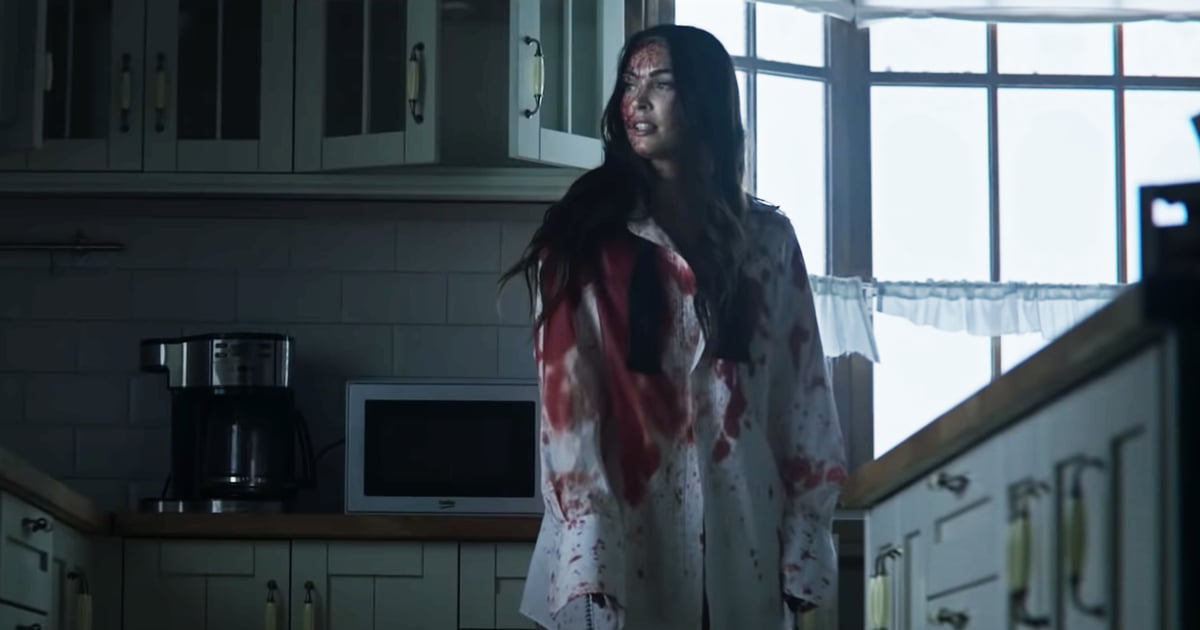What to Watch Verdict
'Till Death' isn't a seamless utilization of its handcuffed restrictions, but Megan Fox shoulders an immense performative weight to sell the heck out of this implausibly engaging chiller.
Pros
- +
❄️ Megan Fox is in synch with the storytelling.
- +
❄️ Viciously nasty setup.
- +
❄️ Will keep you hooked throughout the story.
Cons
- -
❄️ Does it get silly? Sure.
- -
❄️ Aforementioned nastiness replaces reason at times.
- -
❄️ The narrative motivations will bother some.
In Till Death, love is more than a battlefield—it’s a death sentence. Megan Fox finds herself handcuffed to a fresh corpse just after she’d hunted a vicious lioness in Rogue, which is a genre trajectory I wholeheartedly support. Even better? Director S.K. Dale thaws the frigid “romanticism” in Jason Carvey’s screenplay, as the ludicrous concept elicits far more winces than eye-rolls and is certainly no Swiss Army Man fantasy. Fox lugs a dead lump around like Jigsaw’s physical interpretation of “ball and chain” marriage gags, except there’s no comedy here—just an unsettling reclamation of self from the perspective of a woman failed by her husband, society, and Cupid’s arrow.
Megan Fox plays Emma, who is outwardly struggling to find the excitement in her partnership with sleazy defense attorney Mark (Eoin Macken). On their anniversary, Mark surprises her with a lake house retreat in the dead of winter. Memories come rushing back, and Emma starts to vaguely remember the woman she was at the beginning of their relationship—then she wakes up handcuffed to Mark. It’s not a kinky roleplaying situation, either. Mark puts a gun to his head and pulls the trigger, leaving Emma isolated, without help, and bound to the lifeless husk of the man she was trying to escape.
As Till Death extrapolates dangers beyond open windows and frigid temperatures, Carvey’s screenplay digs into the festering wounds central to the narrative. Emma’s survival improbability is akin to Gerald’s Game with greater mobility—beyond eventual altercations (we’ll get there), Carvey uses Fox’s "damsel" to perpetuate how women often find themselves on the receiving end of the blame. Mark’s possessiveness and spiteful suicide are only the tip of the iceberg. One of Mark’s ex-clients—Bobby Ray (Callan Mulvey), who mugged and stabbed Emma—bursts through the door and blames her for his incarceration. The exasperation and disenchantment Emma wears on her face is like that of a trapped Princess Peach, as her fate as an object of affection or unallowed victim affords her no choices. The whole body anchor subplot stokes intrigue, but it’s how Dale amplifies societal commentaries that elevates what could have been another failed gimmick thriller.
It’s with this addition of Bobby Ray into the picture where
Till Death's addition of Bobby Ray could have resulted in stumbles but the film remains cleverly tense and never succumbs to distractions of the (even more) implausible. Bobby Ray is flanked by his little brother (Jack Roth), who’s vastly more anxious and opposed to murder. (Enter the overarching morality complex that allows Emma to vanish or heave another few breaths.) Mulvey is a sculpture of bad guy bravado and storms around with thunderous footsteps that keep suspense always within reach. Roth is the necessary voice of reason preventing the devil from ending Till Death prematurely, which manages a smidge of empathy. All the while, Emma drags gas canisters or utilizes whatever objects haven’t been removed by Mark (planning is devious and crucial) to separate her useless dead weight.
I’ve always lamented the roles Megan Fox was never offered, and Till Death fuels my rage because she’s so magnetic even as a solitary performer. There’s a moment where Emma buckles under Mark’s heaviness as she fails to lug his corpse up basement steps—using her wedding dress as a sled—and she breaks. Fox sits face-to-face with her character’s cowardly faux alpha (his bullet wound the proof) and unloads her first reclamation burst of “fuck you” dialogue while stained with someone else’s blood. That fury is a look Fox wears so distinguishably well, as Emma kicks into overdrive without ever losing this sense of capability. She brawls, she bawls, and allows emotional acknowledgment still within an independently robust heroine who will no longer allow others’ sniveling projections to dominate her chances at happiness—albeit in the strangest yet sustainably nasty circumstances.
The more I write about Till Death, the more I fall for its relentless and revealing take on empowerment. Megan Fox addresses how women are seen as totems of pleasure without desires and fights back against men who cannot take responsibility for their actions, and how that can depress someone’s spirits—complete with vengeful, retributive counters in return. Within the murderous confines of manipulation blossoms a rise from figurative ashes, as Fox manages a deadly game through iron wills, misogynist views proven wrong, and sparse violence when no options exist. So it’s a punctually straightforward depiction of how women are bound by the shackles of oppression, that crushing might, and the punishing path to freedom Fox morphs into hopefulness despite the bruised-and-beaten circumstances.
The latest updates, reviews and unmissable series to watch and more!
Matt Donato is a Rotten Tomatoes approved film critic who stays up too late typing words for What To Watch, IGN, Paste, Bloody Disgusting, Fangoria and countless other publications. He is a member of Critics Choice and co-hosts a weekly livestream with Perri Nemiroff called the Merri Hour. You probably shouldn't feed him after midnight, just to be safe.


